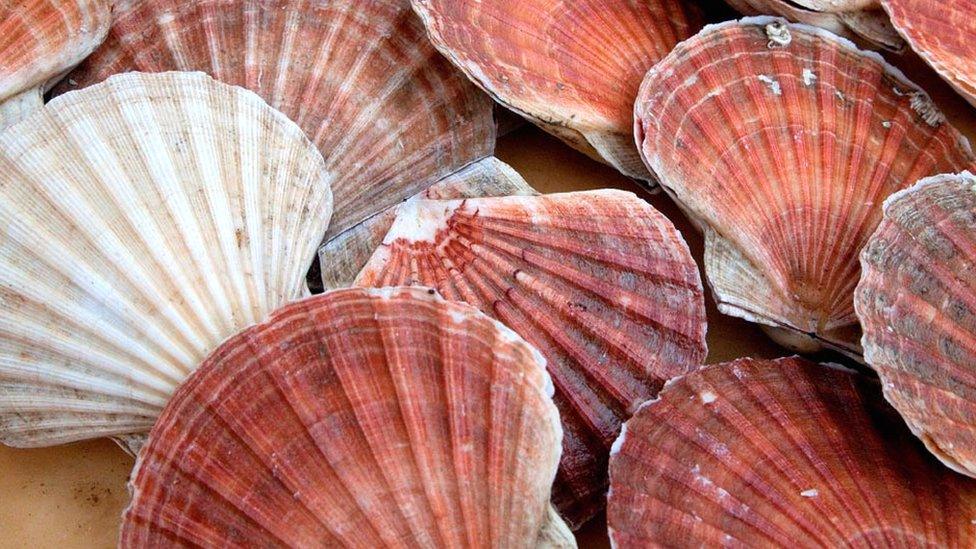Shetland scallop dredging challenge rejected
- Published

A challenge by an environmental group to a decision to re-award a sustainability certificate to the Shetland scallop dredging fishery has been rejected by adjudicators.
Open Seas had argued that the fishery was causing long term damage to vulnerable species.
But the Marine Stewardship Council's review concluded there was no "serious or irreversible" harm to habitats.
The certification is an important marketing tool.
It is aimed at reassuring consumers that fishing is not damaging the environment.
It was originally awarded in 2012 and was due to expire at the end of July.
'Very small footprint'
A final report on the fishery, published by the MSC in January, concluded that is was sustainable at that the sustainability certification could continue.
In an unusual move, that decision was challenged and a hearing was held so the challenge could be heard.
Independent adjudicator Eldon Greenberg's report concluded that the grounds for Open Seas objection had not been established under the terms of the objections procedure and should be dismissed.
Carole Laignel from the Shetland Shellfish Management Organisation, said: "Throughout our fishing we are always conscious of any possible impact on the environment.
"We are the only dredge fishery in the UK to be MSC certified and that is the result of good management, robust regulations and a very small footprint to our fishery.
'Systemic problem'
Claire Pescod, senior fisheries manager at the MSC in the UK, said the concerns were "rigorously and impartially" evaluated, including through the consideration of new evidence.
She said: "The independent adjudicator has confirmed that the fishery's certificate for scallops should be retained. Shetland's code commits it to reassess its operations in light of new scientific evidence.
"Shoppers can continue to buy Shetland caught scallops with confidence."
Phil Taylor, head of policy and operations at Open Seas said: "The fundamental point here is that scallop dredging is a highly damaging form of fishing, and is now being certified by the MSC despite the fact that scallops will continue being dredged from protected areas and areas of vulnerable seabed.
"This decision points to a systemic problem for the MSC. Retailers are using this ecolabel to cloak their sourcing of environmentally damaging products and consumers are getting wise to it."